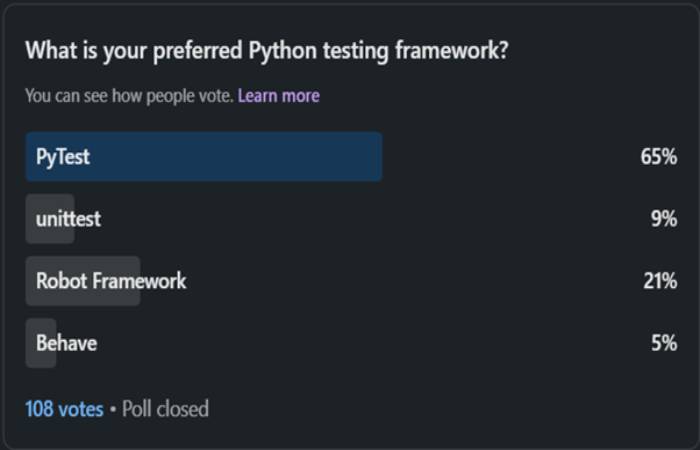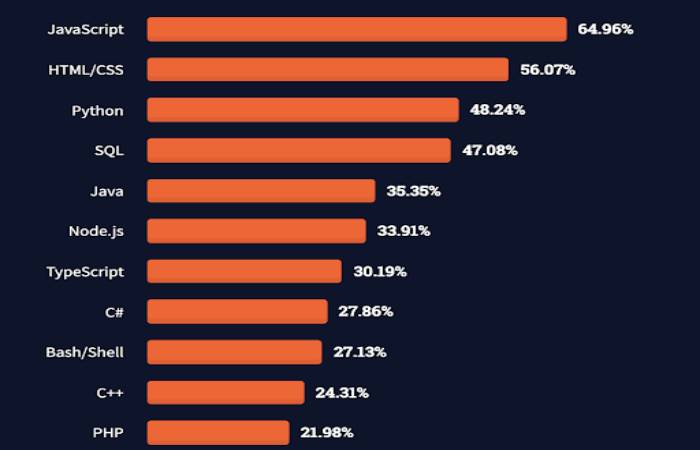Python Libraries in Selenium Test
Automation testing offers an organized approach for checking that web apps function flawlessly while evolving. Selenium stands out as a famous and widely embraced option among the existing automation testing tools, especially when paired with the scalable and user-friendly Python programming language. The dynamic pair of Selenium Python simplifies the test process, fast-tracks execution, and guarantees the robustness of web applications across diverse platforms.
As we delve into the world of Selenium with Python, we will give insight into its features, advantages, and practical applications, ultimately unveiling its revolutionary and innovative potential for web automation testing.
Table of Contents
What is Selenium?
It is a free and open-source testing framework that automates web interactions. It offers tools and libraries that allow QA testers and software developers to script activities such as clicking buttons, filling out forms, and navigating via websites programmatically. Selenium supports various programming languages, including Java, Python, and C#.
One of Selenium’s core use cases is for web app testing, guaranteeing that web pages function appropriately across multiple browsers and platforms. It’s mainly appreciated for automating tedious, repetitive testing tasks, executing regression testing, and checking web app functionality.
Selenium’s robustness and flexibility make it well-preferred for software QA and web scraping. With its capacity to mimic user communications in a controlled and automated mode, Selenium streamlines and eases the process of confirming the performance and reliability of web-based apps.
Why do We Use Selenium for Automation Testing?
In this section, we will learn about the benefits of using Selenium automation testing.
Automation Testing Benefits:
- Reusability: Selenium allows the test scripts to be reused across browsers and platforms.
- Accuracy: Performing the same activities every time using automated tests reduces human errors.
- Speed: Automation permits more excellent coverage as it is quicker than manual testing.
- Regression Testing: Rapid verification so the new code changes don’t affect current functionality.
- Parallel Testing: It saves time and resources by running tests concurrently.
- Continuous Integration (CI): Integrate automation tests into your CI/CD pipeline for speedy and early bug detection.
For instance, you are evaluating an e-commerce website. You intend to automate adding a product to the cart, checking out, and assessing the complete pricing. Selenium can manage the entire workflow for you, running it consistently and rapidly.
What is Python?
Python is a high-level, adaptable programming language famous for easy recognition and use. It mainly needs no introduction! This preferred language encompasses artificial intelligence (AI), Machine Learning (ML), and different associated fields while constructing a project. Guido van Rossum introduced it, and it was first accessible in 1991. Python is an excellent option for amateur and experienced developers owing to its design philosophy, which places an excessive value on readability and code clarity.
The extensive standard library of Python gives prepared-built modules and capabilities for various activities, from web improvement to scientific computing and data analysis, as its core benefits. Python’s cross-browser or platform compatibility guarantees its code performs smoothly across different OSs, making it a robust tool for crafting cross-platform applications.
The immense ecosystem of third-party libraries and frameworks such as Flask, Django, and NumPy, as well as its active community, further enhance its features. Developers can utilize these materials to create tasks, simplify development, increase productivity, and effectively solve challenges. Python’s fame as a famous programming language is constantly visible in sectors like web development, automation, data science, and artificial intelligence. Thus solidifying its status as a preferred programming language for several applications.
Key Python Libraries for Selenium
- unittest / pytest: They are famous testing frameworks in Python that provide gear for arranging and executing test instances, thereby streamlining and simplifying test automation.
- Requests: The Python library makes it less complicated for Selenium to simplify HTTP requests, which makes it viable to interact with backend services or RESTful APIs during testing.
- Beautiful Soup / lxml: It can parse HTML text for data extraction and web scraping task testing, making it easier to verify data or carry out test on the
- Pandas: This data manipulation and analysis tool is quite useful when analyzing test results or running big data sets.
- Faker: It creates realistic check information, along with names, addresses, and email addresses, to allow data-driven test situations.
Why is Python Useful for Automation Testing?
Python is enormously popular in the world of automation. In one of the social media surveys done by LambdaTest concerning the Python test framework, Pytest emerged as a superior choice by 65%. This demonstrates the framework’s robust position in the Quality Assurance and software test community, highlighting the need for dedicated sources and assistance.
Selenium Python Duo is used mainly to automate web browser interactions. It simplifies the generation of scripts to run tasks like filling forms, clicking buttons, and navigating internet pages. While Selenium offers the framework, Python is the popular programming language, making the system intuitive and well-organized. This combination is trendy for web application testing and web scraping.
Here are a few primary reasons for selecting Python as an excellent choice:
A few foremost justifications for Python’s superiority are as follows:
- Readability and Ease of Learning: One of Python’s significance is its readability and simplicity of gaining experience for programmers. The programmers can easily understand its simple syntax. Test scripts of Python can be effortlessly understood and maintained.
- Wide-ranging Library Ecosystem: Python has an in-depth library setup and framework incorporating Selenium. This trait allows testers to use pre-built modules for testing tasks.
- Cross-Platform Compatibility: Python is adaptable to perform on multiple platforms, so your automation scripts function consistently in a series of environments.
For example, you want to test whether the web software’s login page is operating well. The clean, understandable, and readable code in Python allows you to automate the login procedure.
Selenium with Python
The dynamic blend of Python with Selenium enables developers and QA testers to automate web interactions efficiently. The Selenium Python Duo is a series of APIs allowing functional tests using Python with Selenium WebDriver.
These bindings offer a seamless method to interact with web elements on the Application under Test (AUT) and to automate browser testing deeds. Python Selenium bindings allow local browser drivers like IE (Internet Explorer), Mozilla Firefox, and Google Chrome just like other Selenium language bindings.
They additionally provide a remote WebDriver functionality that permits one to connect with a Selenium Grid cloud located at a distance. Python and Selenium collectively enable developers to write down powerful and efficient check automation scripts for web apps.
Python’s extensive library and easy syntax make it accessible and efficient for writing down and maintaining Selenium scripts. Selenium WebDriver, the core element, also acts as an interface between web browsers and Python code, allowing smooth interaction.
Python’s versatility extends Selenium’s applications beyond testing, allowing data extraction, web scraping, and other web-related jobs. The combination of Python with Selenium is a dynamic toolset for ensuring web app reliability, functionality, and performance while easing the automation of repetitive web-based tasks.
Using Python to Configure Selenium
Follow these steps to start using Python and Selenium:
- Install Python: Go to the official web page and get Python installed or downloaded.
- Install Selenium: Load the Selenium framework library using the package manager pip.
- Download WebDriver: Get the relevant WebDriver executable by selecting your preferred net browser (Chrome, Firefox, or others). Make sure your system can access the WebDriver course.
- Craft Your First Selenium Script: Generate Create a Python script and import the Selenium library. Launch the web driver and begin automating web-based interaction from the Selenium import web driver.
# Specify the path to the WebDriver executable
driver_path = ‘path/to/your/webdriver’
# Initialize the WebDriver
driver = webdriver.Chrome(executable_path=driver_path) # Change ‘Chrome’ to your preferred browser
# Open a website
driver.get(‘https://www.example.com’)
# Perform actions (e.g., click a button, fill out a form)
element = driver.find_element_by_xpath(‘//input[@name=”search”]’)
element.send_keys(‘Selenium’)
element.submit()
# Close the browser
driver.quit()
These steps can aid in configuring Selenium with Python and effectively automating web interactions.
You can use any cloud-based platform, to enhance the capabilities of using Selenium Python you can use Lambdatest as the cloud grid platform. LambdaTest is an AI-powered test orchestration and execution platform that lets you run manual and automated tests at scale with over 3000+ real devices, browsers, and OS combinations.
This platform allows you to perform web and mobile automation testing with one or more testing frameworks. Also helps you perform cross-browser testing to validate the workings of the application across various browsers. It also provides many mobile device labs to help you run real device cloud testing.
Conclusion
In a nutshell, the digital age relies heavily on web apps to maintain reliability and effectiveness. Selenium and Python are potent combinations in web automation testing. We can easily automate intricate web interactions with the assistance of the open-source Selenium framework. Python is known for being straightforward and adaptable, which smoothly compliments Selenium.
Developers and testers may substantially boost their potential for optimization by using Selenium with Python to produce dependable and strong web packages, streamline testing procedures, and find problems early in development. The duo empowers experts in various industries by enabling them to navigate the complex realm of web automation with competence and proficiency.
To further augment your Selenium test automation efforts, consider incorporating LambdaTest into your workflow. Its cloud-centric Selenium Grid proffers a vast collection of real browsers and devices, enabling one to execute tests in parallel across varied environments. With CI/CD integration, innovative testing prioritization, detailed test analytics, and collaborative test tools, LambdaTest empowers QA and software testing teams to streamline their test processes and deliver high-quality software products.
